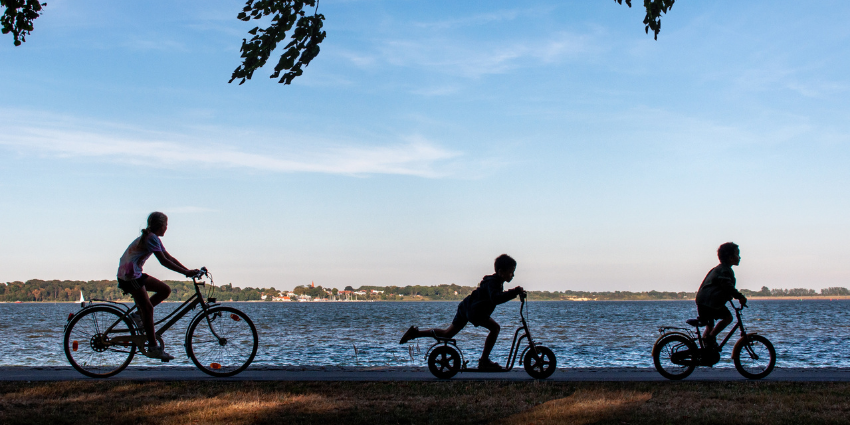Youth Justice Services focuses on providing programs and services to help:
- supervise and rehabilitate young people in our custody
- support young people on orders in the community
- divert young people away from the criminal justice system.
To view location details, select a map marker or filter by region tabs or location type.
Young people in detention
Show moreThis facility is managed by the Women and Young People Directorate. In accordance with the Young Offenders Act 1994, young people should only go into detention as a last resort or when the offence they have committed is extremely serious.
Whilst in custody young people will have access to a range of supports from Youth Custodial staff and support services including: Aboriginal Welfare Officers, Aboriginal Visitors Scheme, Case Planning, Chaplains, Education, Medical, Mental Health Nurse, Psychologists, Program Providers, Youth Justice Officers and contracted external support services. These services work collaboratively in an effort to best support a young person’s physical needs in addition to their emotional well-being, life-skills and rehabilitation with the aim of reducing further offending and supporting their seamless transition back into the community.
Young people also have access to official visits in addition to social visits. Family members and friends are encouraged to maintain contact through phone calls, e-visits and in person visits. Inter-prison video links and phone calls can also be arranged to enable young people who have close family members in custody maintain contact.
Structured Day
Show moreYoung people aged 17 and under are required to attend school Monday to Friday. Those above school age can either continue their studies or take part in post compulsory activities designed to improve their employment skills.
Young people will also have the opportunity to engage in a wide range of programs designed to address the contributing factors to their offending (also known as criminogenic needs), life skills, emotional well-being and rehabilitation in addition to recreation. These programs include but are not limited to: Army Cadets, Emergency Services Cadets, barista training, hip hop classes, AFL, rugby, basketball, mental health awareness, sexual health, offence specific counselling, substance use and healthy relationships.
The structured day and programs and services delivered at Banksia Hill Detention Centre are aimed at developing and enhancing a young person’s skills set, promoting responsible citizenship, reducing the likelihood of offending and enabling young people to lead law abiding and positive lives in the community.
After Conviction: what next?
Show moreFines
A fine may be given to the young person or an adult who is responsible for their care. The fine usually covers the cost of replacing an item or repairing damage, but may also be increased to pay for the hurt caused by the young person's actions. The Children's Court must establish that the young person is able to pay a fine in order to impose this penalty.
Good Behaviour Bonds
A Good Behaviour Bond is generally given to young people who have committed minor offences or where victim involvement is minimal. The young person's ability to pay must also be considered because a monetary bond is set and will be forfeited if the young person re-offends.
Community Work Order
If a young person has not paid their fine, forfeited a bail undertaking or has not abided by the Good Behaviour Bond, then the Court may place a young person under a Community Work Order (CWO). The Court will decide how many hours of community work the young person will need to do to make up for the money they owe. If the young person does not obey the order, they could be given a period of detention.
Community Based Dispositions
A community based disposition ensures the young person can remain living in the community, in a familiar environment, whilst complying with the conditions of their order.
There are three community based dispositions young people can be made subject to through the court process.
These community dispositions require young people to attend formal supervision sessions with their allocated youth justice officer. A young person can be directed to attend appropriate programs to address their offending behaviour or undertake community work.
A young person may also be given a curfew to make sure they do not go to places that may encourage further offending.
Some young people may need extra support and advice from a person who is outside of their family. These young people may have a youth support officer (mentor) who can give them advice about family, school or social matters. There are male and female youth support officers who represent different cultures so they can work closely with the young person and support their re-entry into the community. An effort is made to look after the unique needs of young Aboriginal people and young people with a disability.
Youth Justice Services (Regional)
Show moreYouth Justice Services currently operate in the Goldfields, Mid-West Gascoyne, West Kimberley, East Kimberley, Pilbara and the southern regions.
Youth Justice Services in the regions offer:
- supervision and support of young people on community orders
- management of young people on Juvenile Justice Team referrals
- an extended-hours bail service to help police find a responsible adult to provide bail for young people who are eligible for bail
- a youth bail service that provides limited short-term supervised accommodation as a last resort to custody for young people who have been given bail but have no-one to bail them and nowhere to go
- psychological support.
Announcements



